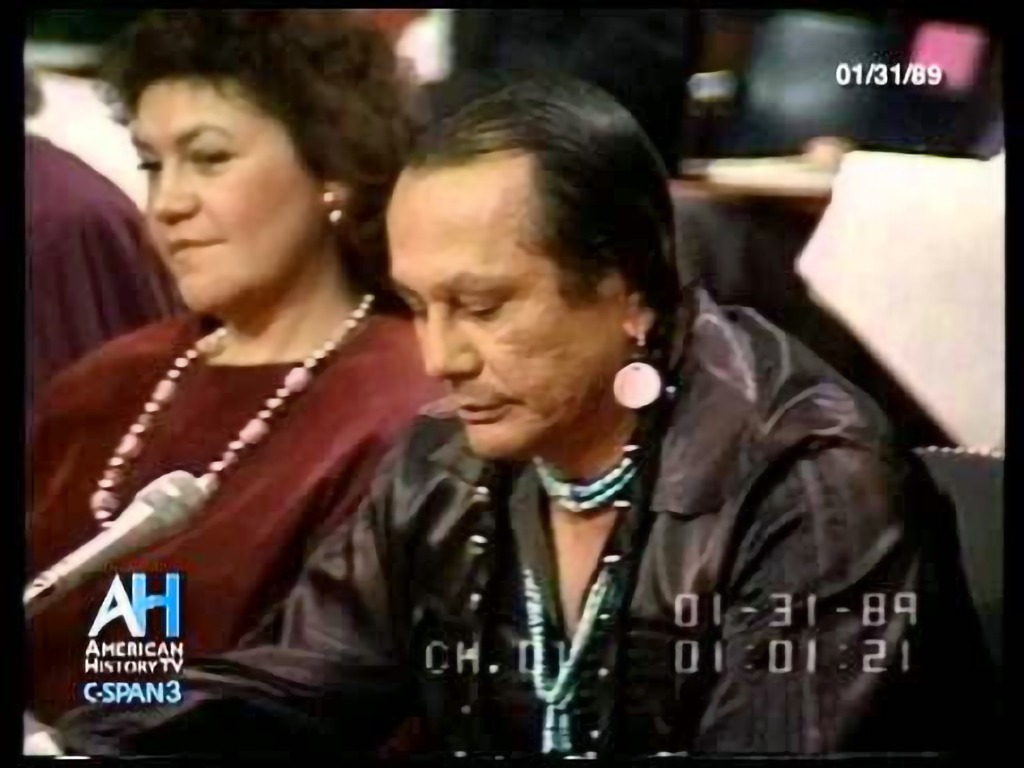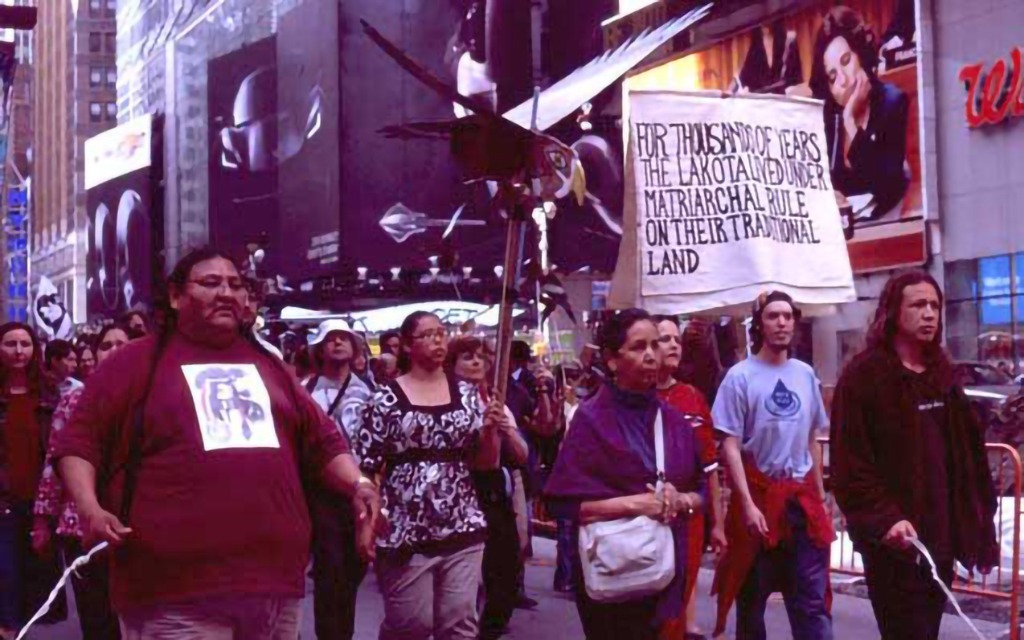
1989 – American Indian Activist Russell Means Testifies Senate Hearing
Hidden History Exposed: How U.S. Government Policies Targeted First Nation Economic Sovereignty
Discover the untold history of Russell Means’ fight against systemic poverty in First Nation communities and the rise of the Republic of Lakotah’s success story. Youtu.Be.
Hidden History: How U.S. Government Policies Targeted First Nation Economic Sovereignty – In 1989, American Indian activist Russell Means made waves with his powerful Senate testimony, shedding light on a troubling reality: U.S. government policies have actively hindered the economic development of First Nation communities.
Means presented undeniable proof that whenever the Lakotah Nation began achieving economic viability, new government regulations stifled their progress. Despite these barriers, the Lakotah Nation managed to recover three times, showcasing their resilience and determination. Unfortunately, the final wave of restrictions left them unable to bounce back, forcing them to reimagine their path to sovereignty.
This led to the creation of the Republic of Lakotah, a groundbreaking initiative that empowered the community to reclaim their autonomy. One of the Republic’s most notable successes is its education system, boasting a remarkable 100% success rate among its students.
Means’ activism also extended to dismantling oppressive systems like the Bureau of Indian Affairs (BIA), a U.S. government agency accused of perpetuating poverty and dependency in Native communities. By challenging and winning against these systems, Means proved that sovereignty is not only possible but essential for overcoming systemic challenges.
Key Takeaways:
- Systemic Barriers: Government regulations repeatedly suppressed Lakotah economic growth.
- Resilience and Recovery: Despite setbacks, the Lakotah Nation rebuilt their economy multiple times.
- Sovereignty in Action: The Republic of Lakotah exemplifies self-determination through initiatives like their education system.
- Historical Testimony: Means’ Senate hearing testimony remains a powerful example of exposing systemic injustice.
By revisiting stories like these, we can better understand the historical and ongoing struggles faced by First Nation peoples. More importantly, they highlight the transformative power of sovereignty and self-governance in addressing the root causes of poverty and inequality.





Very powerful speech. . Rip.
You do know why Native Americans and indigenous people need to be suppressed? I’m not for it but there is a big reason.
Nus Vaj – What’s the reason?
Because they’ll regain there sense of self and start to fight for their rights.
A domesticated dog does not bite the hand that feeds it, but a stray dog knows it’s freedom. I’m not calling us dogs or anything like that.
Nus Vaj – I think they are already fighting for their rights. A lot of it can be seen with the Idle No More movement.